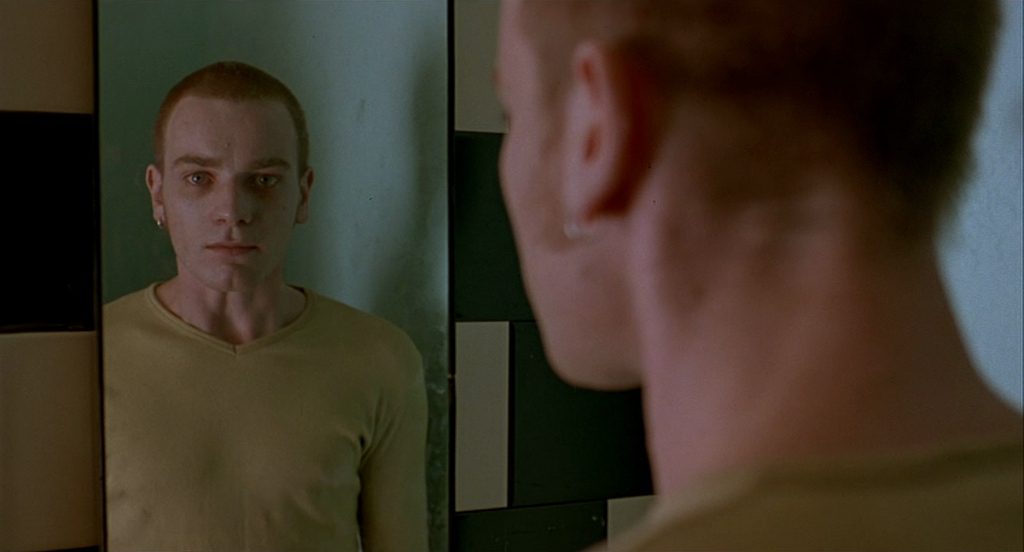Addiction is a complex and often misunderstood condition that affects millions of people around the world. It is a chronic disease that can have serious consequences for an individual's physical, mental, and social well-being. While addiction is a serious issue that should be treated with compassion and understanding, depictions in entertainment have been more varied, often with negative undertones or relying on stereotypes.
With this in mind, let's break down how addiction is portrayed in popular entertainment.

Addiction as Moral Failing
One way that addiction is often portrayed in film and television is as a sign of weakness or moral failing. This is especially true in older movies and TV shows, where characters with addiction problems are often depicted as being unable to control their own behavior and making poor decisions. Although we're seeing more nuanced depictions in recent years, depicting addiction as a sign of moral failing was quite common until somewhat recently.
Trainspotting (1996) is a great example of a film that film that really emphasizes the destructive consequences of drug addiction, particularly with regard to one's self-concept. The film follows the character of Mark Renton (Ewan McGregor), a young man who becomes addicted to heroin and becomes caught in a cycle of drug use, theft, and crime.
One of the main ways in which addiction is depicted in "Trainspotting" is as an uncontrollable behavior or moral failing. The film portrays Renton's addiction as something that he is unable to control, and it suggests that drug addiction is a moral failing rather than a chronic disease. This portrayal is in contrast to a more nuanced and realistic portrayal of addiction, which recognizes that it is a complex and chronic condition that requires professional treatment and support to overcome.

Glamourous Indulgence
When it's not implied to be the result of immorality or a sign of bad character, addiction is often romanticized with the lifestyles of characters who misuse alcohol or take recreational drugs being depicted as cool, edgy, or exciting. These portrayals do not accurately reflect the realities of substance use and, instead, may show characters abusing alcohol and taking drugs as part of an elaborate adventure.
A film that glamorizes alcohol and drug use is The Wolf of Wall Street (2013). The film shows the rise and fall of real-life stockbroker Jordan Belfort (Leonardo DiCaprio) whose success is due to a combination of charisma, criminality, and heavy partying. In fact, the film goes to great lengths to normalize Belfort's substance use, showing it to be a necessary ingredient for him to maintain his social and professional lives.
Another film that glamorizes alcohol and drug use, which coincidentally also stars Leonardo DiCaprio, is The Great Gatsby (2013). Adapting the classic American novel, the film follows a group of characters pulled into the inner circle of Jay Gatsby, a mysterious and wealthy socialite who throws lavish parties and uses recreational drugs. Gatsby doesn't just normalize his hedonistic lifestyle but shows the character being celebrated for it.
You can also see alcohol and drug use glamorized on the small screen as in HBO's Entourage, which follows the character of Vincent Chase (Adrian Grenier), an actor who sees his star rising despite being a heavy drinker and drug user. Much like Gatsby and Wall Street, the show never forces Chase to contend with any real consequences for his substance use.

Depicting Addiction with Compassion
In recent years, there's been an influx of films that tackle addiction in a more compassionate way. A great example of this is the film 28 Days (2000) in which Sandra Bullock plays Gwen Cummings, a young woman struggling with addiction. The film follows Gwen as she enters a rehabilitation center and works to overcome her addiction to alcohol and prescription pills. Forced to confront the deep hurt she's inflicted on the people around her, Gwen eventually chooses to pursue
One of the main ways in which addiction is portrayed in 28 Days is as a destructive and self-destructive force. Throughout the film, Gwen's addiction is shown to have a negative impact on her relationships, career, and overall well-being. The film presents addiction as something that can consume and control an individual, leading them to make poor decisions and hurt those around them.
Another way in which addiction is portrayed in 28 Days is as a chronic and complex condition that requires professional treatment to overcome. The film shows Gwen going through the process of rehabilitation and attending group therapy sessions, where she learns about the underlying causes of her addiction and works to develop coping mechanisms to deal with her cravings.
One of the strengths of 28 Days is its portrayal of the recovery process as a difficult and challenging journey. The film does not shy away from showing the struggles and setbacks that Gwen faces as she works to overcome her addiction, and it presents recovery as something that requires hard work and perseverance.
In recent years, we've seen a shift towards more realistic and compassionate portrayals of addiction on TV as well. The popular show Intervention follows individuals struggling with addiction with a particular focus on how their loved ones have been affected. By giving viewers a better look at the realities of addiction, Intervention communicates the importance of seeking help.

Hyper-Realism
Requiem for a Dream (2000), directed by Darren Aronofsky, is an example of a trend in entertainment wherein the emphasis is on the destructive potential of addiction. The film follows four main characters – Harry Goldfarb (Jared Leto), Marion Silver (Jennifer Connelly), Tyrone C. Love (Marlon Wayans), and Sara Goldfarb (Ellen Burstyn) – as they struggle with addiction to drugs, food, and television, respectively.
In the film, addiction is portrayed as a destructive and, perhaps more importantly, self-destructive force. Throughout the film, the characters' addictions are shown to have a negative impact on their relationships, health, and overall well-being. Moreover, Requiem follows the characters through the process of rehabilitation and attending group therapy sessions where they must confront the underlying causes of their addiction and learn coping mechanisms to deal with their cravings.
One of the strengths of Requiem is its portrayal of the destructive nature of addiction. Unlike other films we've discussed here, Requiem does not shy away from showing the negative impact that addiction can have on an individual's relationships, health, and overall well-being, and it presents addiction as something that, given the chance, will ruin an individual's life.
Sobriety is Possible – Contact Never Alone Recovery Today
The way that addiction is portrayed in film and television has a significant impact on how we understand and perceive addiction. This makes accurately portraying the realities of addiction and the challenges that people with addiction face, rather than perpetuating negative stereotypes or glamorizing drug or alcohol use, is extremely important. With more nuanced yet compassionate media, we can educate people about the realities of addiction and the importance of seeking support to overcome it.
For more information about addiction in entertainment, or to find help for you or a loved one, contact Never Alone Recovery today.
film & tv, trends


We're On Medium!
We're sharing the recovery stories of our community members. Be sure to check out Never Alone Recovery on Medium to read those featured stories.
YOU MAY ALSO LIKE...
January 27, 2023
February 27, 2023
May 12, 2023
September 7, 2023
February 7, 2022
DISCUSSION